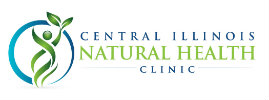Eczema is a troubling skin condition that affects millions of Americans. The itchy rash of eczema is due to an atopic reaction: an inappropriate inflammatory response by the immune system. One thing that has long been known to help eczema, especially the type associated with food allergies, is the use of probiotics supplements (those beneficial bacteria). Sometimes we think of probiotics as only helping with digestive problems, but their beneficial effects extend throughout the body. These effects range from helping with obesity to depression to autism.
A new review study (1) clarified the effects of probiotics in eczema and food allergies. The author clarified that probiotics taken orally have a balancing effect on our immune system (immunomodulation). This is because most of our immune tissue is located along the lining of our digestive tract. The interaction of probiotic bacteria with these immune cells sends chemical signals to the immune system in the rest of the body, to make sure it’s not overactive or under-active. Think of it as a toning workout for our immune system.
Probiotic supplementation seems to be most effective at preventing and treating eczema from ages 0 to 2. Prenatal probiotic supplementation by the mother can also have a strong preventive effect.
The type of probiotic matters, also. The most beneficial effect was seen with Lactobacillus rhamnosus, but the author emphasized that the chief consideration for immunomodulation is the diversity of microbes in the gut. For this, it’s important to maintain a high fiber diet, to provide the prebiotic nutrients necessary to feed these helpful critters. Another key to microbial diversity is to declare a truce in the “war on bugs:” let your kids play in the dirt. Get rid of the antibacterial hand soaps. Take it easy on the Clorox wipes. By decreasing our exposure to germs, this kind of over-attention to hygiene may actually be one of the big contributors to the increased incidence of allergies and eczema over the last couple of decades.

